After two-year hiatus, Tobago Heritage Festival begins in earnest
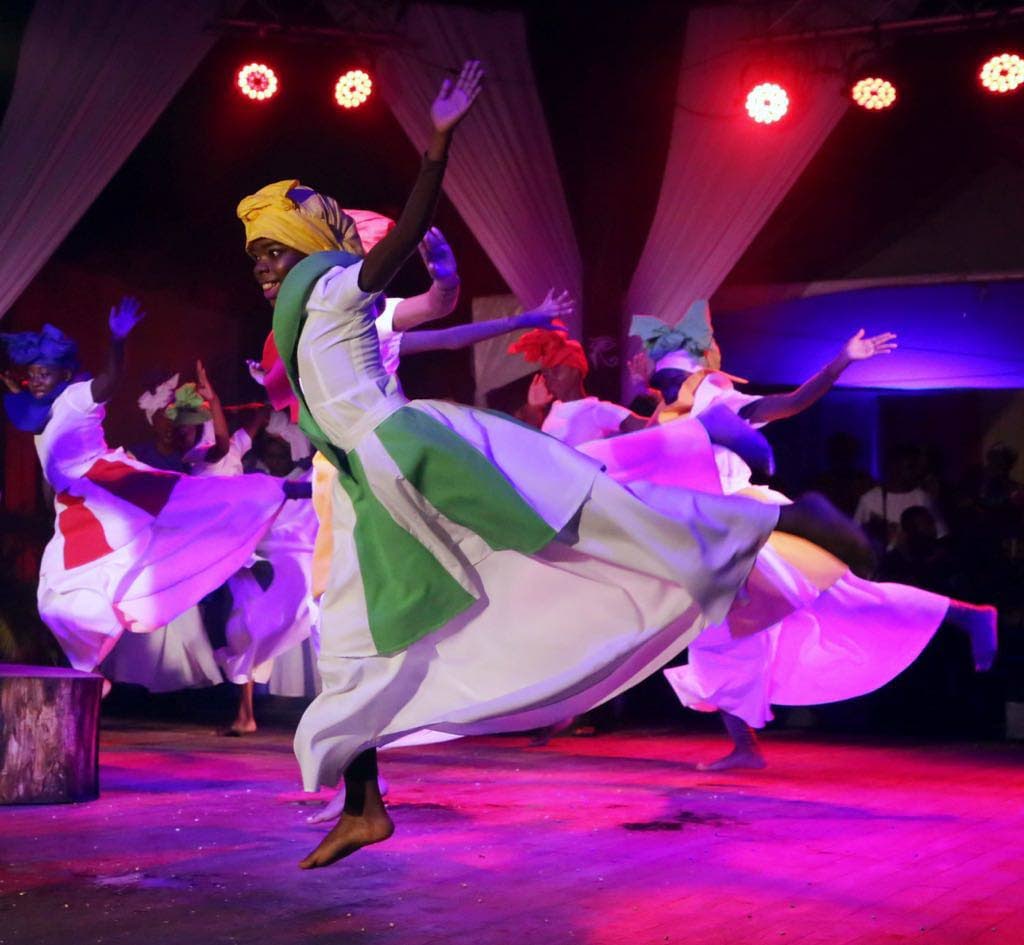
The Tobago Heritage Festival’s village presentations begin in earnest tomorrow with Charlotteville’s Natural Treasures.
On Wednesday, the action shifts to Pembroke for its presentation, Salaka Feast.
Then its off to Les Coteaux on Thursday for Folk Tales and Superstition and the Moriah Ole Time Wedding on July 30.
After a two-year hiatus, the festival, now in its 35th year, returned to an in-person audience on Friday with a gala opening at the Shaw Park Cultural Complex.
The theme of this year’s heritage festival is Reflect, Rebirth, Rejoice – Reigniting the Flames of our Legacy.
Charlotteville organiser Annette Nicholson-Alfred told Sunday Newsday the village’s presentation will follow the typical format with some changes.
It is essentially a re-enactment of the traditions and way of life of the community.
Scheduled to start at 9.30 am, the presentation begins with a procession from historic Fort Campbleton into the village.
Fort Campbleton, one of several on the island, offers a breathtaking view of Charlotteville and its environs.
It was established by the French during its occupation of Tobago back in the 1700s and is a haven for locals, visitors and even students preparing for exams.
During the walk, there will be singing, chanting, dancing and drumming.
Participants will also be invited to stop at various junctures along the route to relive certain traditions.
Nicholson-Alfred, a Charlotteville native and well-known cultural activist, said the activity will be educational, enlightening and entertaining.
One of the stops, she said, features what is known as the washing of the “dead bed.”
In this ritual, the dirty clothing of the deceased is removed from the home of the deceased and taken to the river to be washed and dried. The clothes are then taken back to the home in neatly packed basins.
The washerwomen protect themselves from the spirits of the deceased by washing their hands and faces with some alcohol. They also wash the “dead bed” with soap.
The former independent senator said participants will also learn about the history of cocoa in Charlotteville before Hurricane Flora devastated the industry in 1964. They will also learn about the art of making and dancing the cocoa.
She said baking was a common activity in Charlotteville as most houses were equipped with dirt ovens. Villagers also regularly took turns using some of the ovens, which were heated with bamboo and wood.
Nicholson-Alfred said at the village bakery, which also played an integral party of life in the village, one could have gotten home-made bread, cakes, sweet bread, coconut tarts, pine and other delicacies.
She said the “batty mill,” a piece of equipment used for making sugar cane juice in olden times, will also be on display.
Unlike previous years, Nicholson-Alfred said there will not be a concert at the end of the procession. Instead, entertainment will be interspersed during the stops along the trek.
Why is Charlotteville’s heritage presentation unique?
“It is different from many because we not only show the presentations but we also explain them. There will be somebody to do the narration on that day.”
The founder of the Mt Pleasant-based Itsy Bitsy Folk Theatre and Museum, Nicholson-Alfred said she was pleased with the involvement of young people in the production.
She said yet again the Charlotteville Police Youth Club has joined forces with the Heritage Folk Performers.
“Talk about eager. They (youth club) will be drumming and our youths will be dancing and singing folk songs.”
A tambrin band from Golden Lane will also be assisting with the presentation.
Nicholson-Alfred said visitors can expect a day of enjoyment.
“When Dr JD Elder (late educator/historian/anthropologist credited with establishing the heritage festival) had started the heritage festival, it used to be a whole day in the village. And our presentation this year will be a whole day in the village.”
She said people will also be able to enjoy a range of home-cooked delicacies and and enjoy boat rides to the different beaches along the scenic, seaside village.
Pembroke’s Salaka Feast will reflect on the contributions of the village’s late cultural stalwarts.
“We are trying to keep with the theme of reflections, looking at the people who really brought the heritage to Pembroke and telling their stories. It is more about education and reflection and linking it with how we go forward,” said Wendell Berkley, one of the event’s main organisers.
He said the Salaka Feast, which features prayers, dance, song and theatre, is essentially an ancestral festival.
“It is about the people who were responsible for our upbringing and have now passed on So when they die, it is not about worship but more reverence and recollection. And because the people are dead, there is the symbolic offering of food, drink, drumming and invocations.”
Berkley said during the covid19 pandemic over past two years, the community was able to truly reflect on the importance of the heritage festival.
He said, “When we do something continuously, after a while it becomes second nature so we are not able really to appreciate the importance of it in terms of keeping the community together, in terms of putting value into the young and the old.”
But he believes Pembroke, which has historically been associated with culture in Tobago, is more fortunate than other communities “because we have a bell that can be sounded to bring people together.
Berkley, who regards himself as a folklorist/historian, said the area has produced practitioners who have continued to make their mark in Tobago’s culture and further afield.
Naming Tobago Performing Arts Company CEO Elvis Radgman, cultural officer Jesse Taylor and dancer Shaquille Jones as examples of people who have done the area proud, he said even the current Anglican Bishop Claude Berkley once dabbled in culture through the Best Village competition and heritage movement.
“There are many people in Pembroke we could attach some level of success or would have had a part.”
Berkley said Pembroke’s cultural heritage has continued to play an integral role in its religious and social life.
Performing under the theme, Folk Tales and Superstitions, president of the Les Coteaux Close Connection Cultural Club Carion Job said the village will not disappoint in its presentation, It Takes Three to Tangle: May the Best Woman Win.
The production, Job said, tells the story of a man from the community with three wives and the lengths to which they are willing to go to keep him.
She said apart from dance, song and drama, obeah will again be incorporated into the production.
“You can’t get rid of the obeah. we have the man tying the women and we also have the women tying the man.”
“So we expect people to walk with their pen and paper to take their little notes because they might want to try it.”
Job said such scenarios are standard fare in Les Coteaux’s heritage presentations.
“People can always expect something spectacular coming out of Les Coteaux. It would be riveting,” she told Sunday Newsday.
Job plays one of the wives and said Les Coteaux’s productions have historically reflected factual events that occurred in the village many decades ago.
“We might tweak the names a bit. We might add and take away so as to not offend anyone.”
Job, the club’s president for the past six years, said Les Coteaux tries consistently to be unique in its presentations.
“We do not want to be monotonous. Although our theme is folk tales and superstition, we bring the folktales, we bring the superstition but we don’t want our story lines to be stale.
“We try to bring something different and new every time that is unique to Les Coteaux. Other villages will do a tie or an obeah. But only in Le Coteaux you will get the real thing with the authentic expressions.”
Preparing to return to the stage after being away from it for the past two years has been challenging, Job said.
“I did not think it would have been so hectic. It is very time-consuming because we are at work all day and then you have to get to the community centre at 7 pm. One night we stayed until midnight.”
Nevertheless, Job said performers are energised.
“After a long sabbatical we are excited for next week to get back on stage and do something that we all love.”
Characterised by colourful, intricately-designed outfits and head wear, Moriah’s ole time wedding continues to be one of the more popular events on the heritage calendar.
Secretary of the Moriah Heritage Committee Ingrid John said the village first performed the wedding in 1962 when Trinidad and Tobago achieved independence.
“I was told that all of the villages at that time were invited to do something indigenous to their communities the wedding was first performed,” she said.
John said when JD Elder established the festival during the late 1980’s, Moriah simply continued with the tradition.
“People will argue and say all of the villages had weddings but when you coming to Moriah you had to be properly dressed.”
John said the wedding’s main attraction is its “characters.”
She said during the wedding procession, spectators will see a woman carrying a canister with two pillows on her head.
“That tells you that the bride is not leaving her parent’s home naked.”
They will also see a woman with a wedding cake and one with a coal pot.
Of the latter, John said, “This means that when she is leaving the house, she could take care of her husband’s laundry.”
She said a man dressed as a gardener, though not part of the wedding party, will also join in the celebration.
John said the entire village is looking forward to presenting the wedding again.
“We missed it so much and we are grateful that we can come out on the streets to portray our culture. We do not want our culture to go down the drain.
“Those who started it have passed on and it must be kept for the current and future generations.”
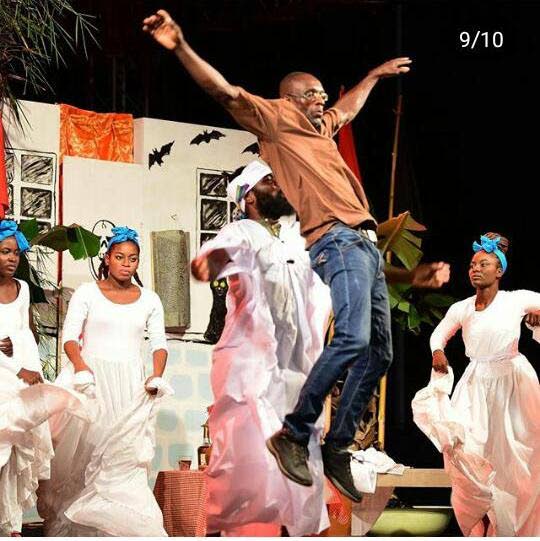
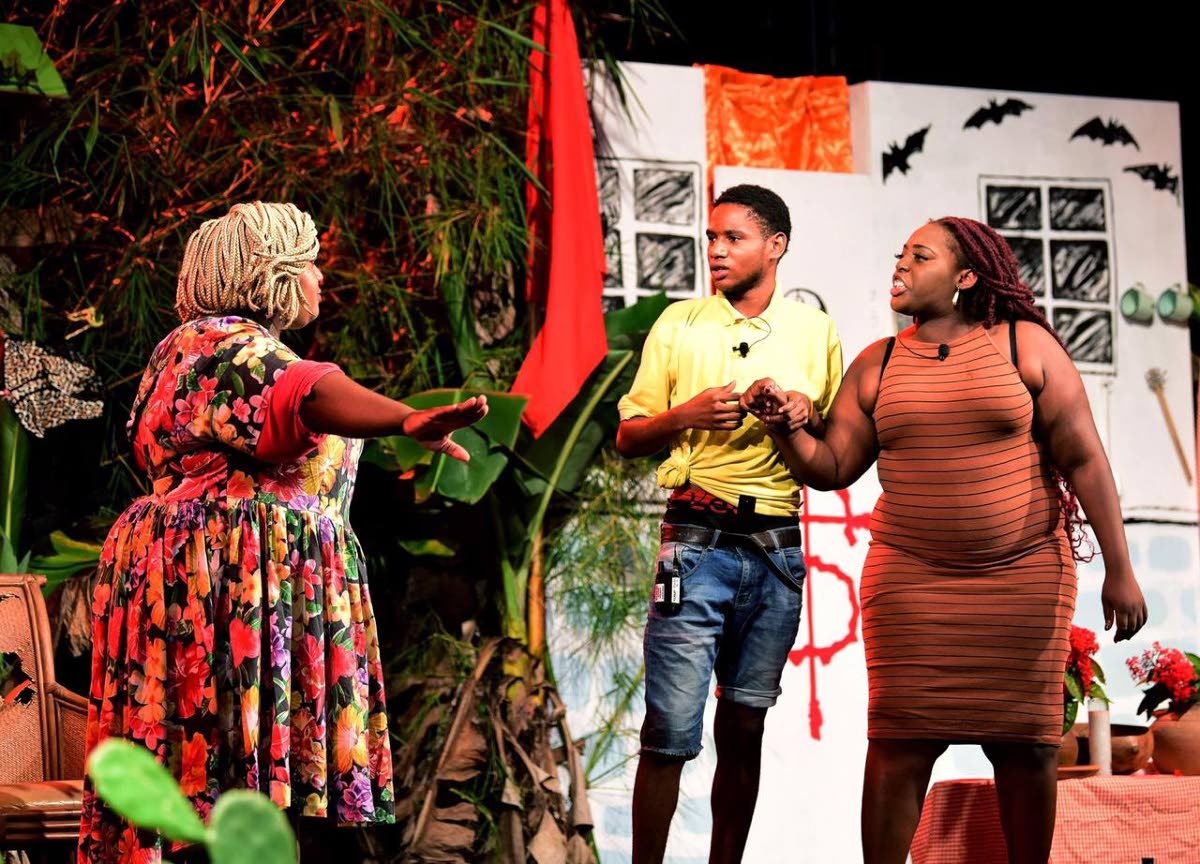
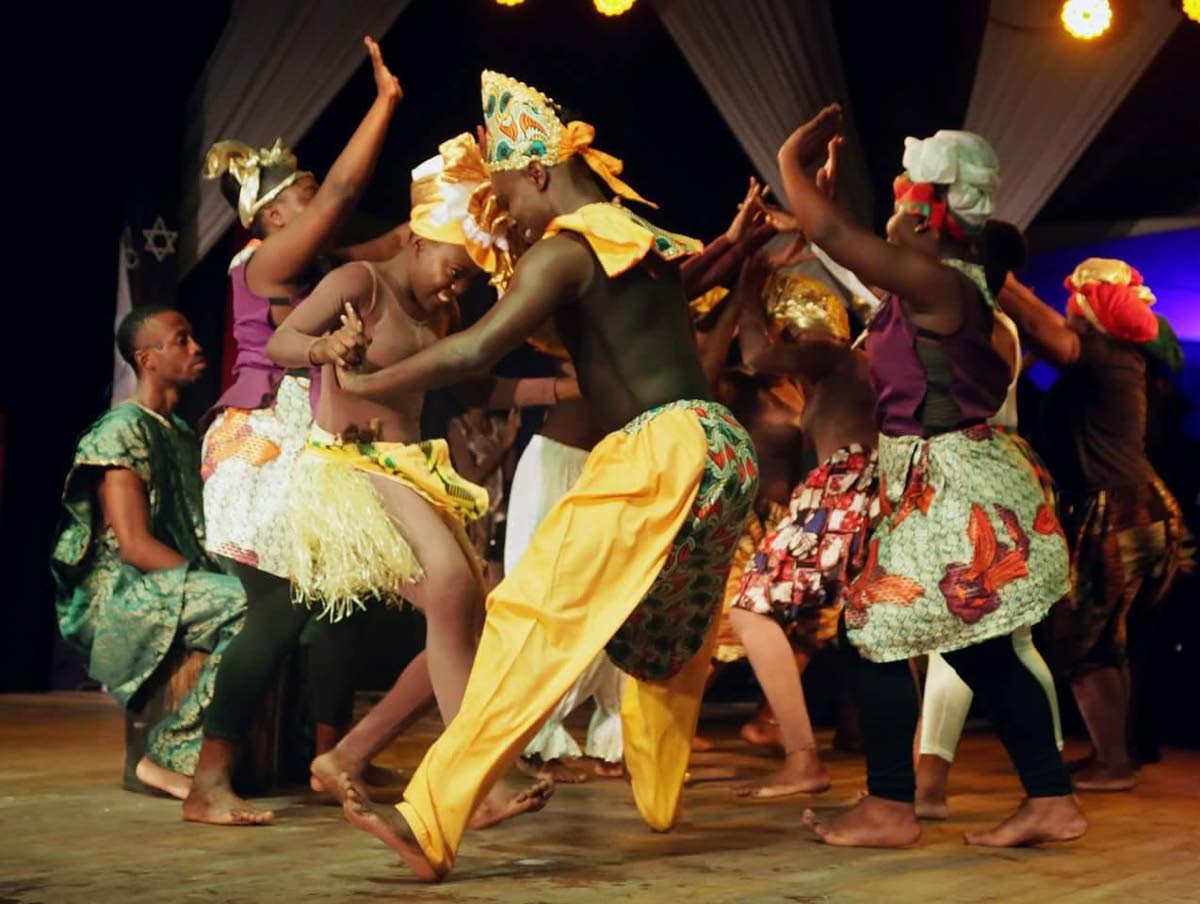
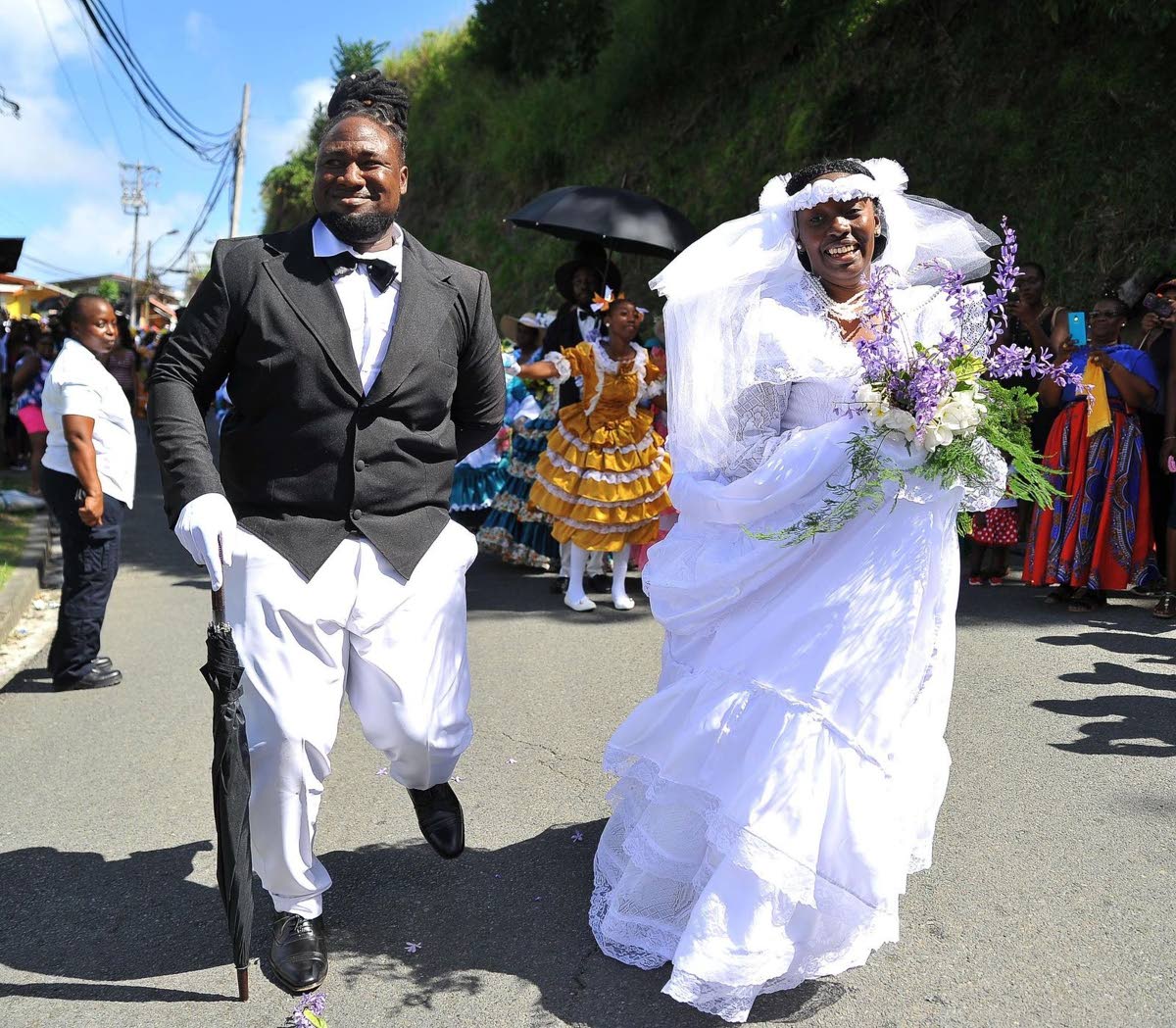


Comments
"After two-year hiatus, Tobago Heritage Festival begins in earnest"